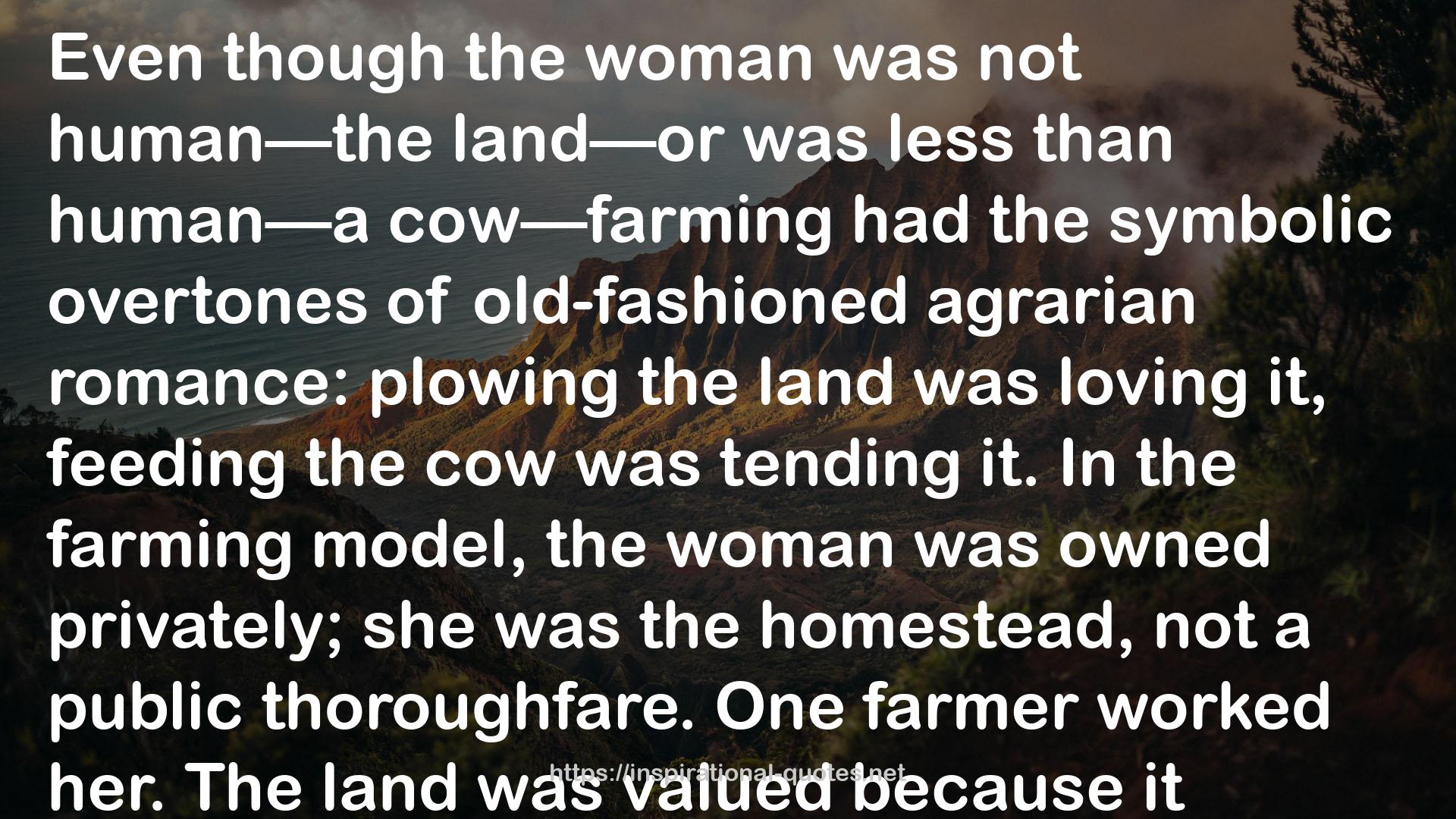" Even though the woman was not human—the land—or was less than human—a cow—farming had the symbolic overtones of old-fashioned agrarian romance: plowing the land was loving it, feeding the cow was tending it. In the farming model, the woman was owned privately; she was the homestead, not a public thoroughfare. One farmer worked her. The land was valued because it produced a valuable crop; and in keeping with the mystique of the model itself, sometimes the land was real pretty, special, richly endowed; a man could love it. The cow was valued because of what she produced: calves, milk; sometimes she took a prize. There was nothing actually idyllic in this. As many as one quarter of all acts of battery may be against pregnant women; and women die from pregnancy even without the intervention of a male fist. But farming implied a relationship of some substance between the farmer and what was his: and it is grander being the earth, being nature, even being a cow, than being a cunt with no redeeming mythology. Motherhood ensconced a woman in the continuing life of a man: how he used her was going to have consequences for him. Since she was his, her state of being reflected on him; and therefore he had a social and psychological stake in her welfare as well as an economic one. Because the man farmed the woman over a period of years, they developed a personal relationship, at least from her point of view: one limited by his notions of her sex and her kind; one strained because she could never rise to the human if it meant abandoning the female; but it was her best chance to be known, to be regarded with some tenderness or compassion meant for her, one particular woman. "
― Andrea Dworkin , Right-Wing Women
